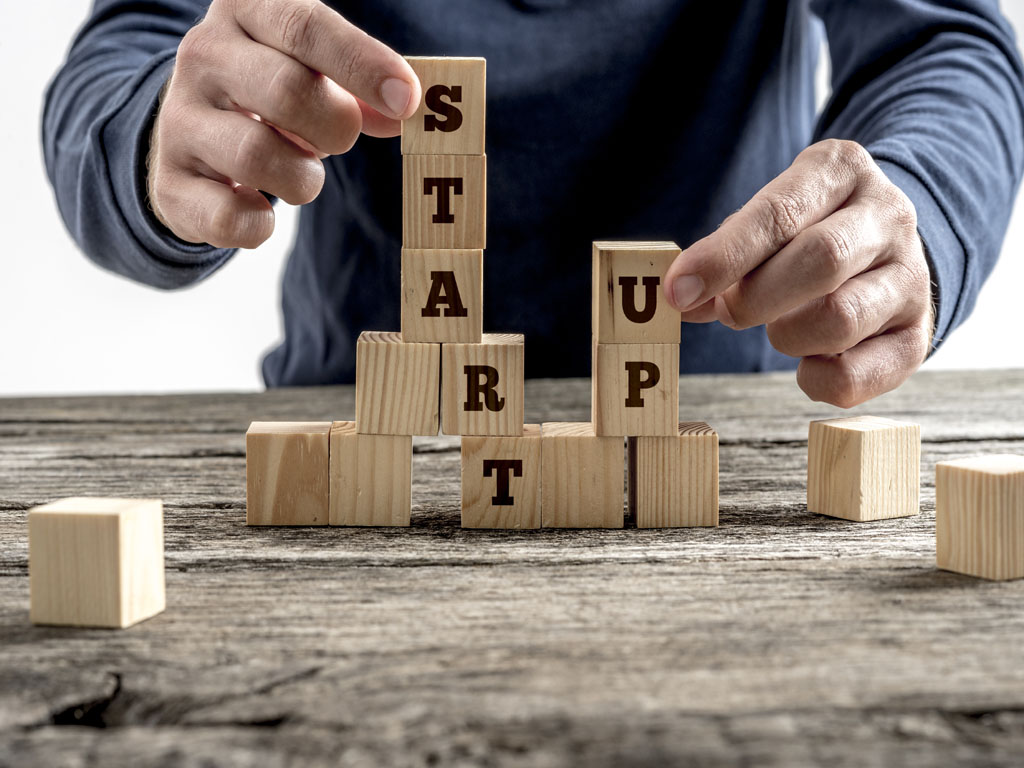Companies making increasingly more investments in startups – Quick technology development creating synergy of “the small” and “the big”
The startup community in Serbia has been successfully developing in the past few years. New products and services, primarily in the sector of high technologies and innovations, are conquering the local and the international market, and, along with a considerable growth in the number of companies and projects, support programs of the state, local and international funds and large companies and multinational corporations, are growing more numerous as well.
Company business incubators and accelerators, meant primarily for startups and young entrepreneurs, support these companies by funding their development, but also through education, the sharing of experiences and mentoring. On the other hand, they thereby aid their growth and market penetration, while, on the other hand, getting new ideas for their business, as well as potential business partners in the future.
Zoja Kukic, the director of Startit, an organization which has been developing the startup community for years, says in her interview with eKapija that company programs for startups are especially interesting for teams to which, in a way, a corporation can be a client or at least facilitate access to the market.
– These company business incubators and accelerators are a good way for startups to realize how corporations think, to see what the system is like from the inside, but also to reach direct cooperation and sell their services through a shortcut. Still, startups should carefully choose programs to take part in, as it happens that suggestions and changes the corporation demands cause the startup to lose those aspects of its business that made it innovative and different – our interviewee notes.
Startit is also Telekom Srbija's main national partner within these two companies' cooperation with the startup ecosystem. As Telekom says for eKapija, they support technological entrepreneurship and cooperate with the startup community through the cooperation with national partners and the launching of their own programs.
– A tighter bonding with the startup ecosystem has been given a clear priority within the strategic orientation and activities of the company for several years now. In fact, Telekom has, in a way, been cooperating for around ten years now with companies that could be called startups, and we have also formed a special department which deals with partnership cooperation with small and medium enterprises that have finished products or are on their way to turning their idea into a sustainable commercial service – Telekom Srbija says and adds that, at the same time, they are trying to have a positive impact on the development of startups throughout the group. In that respect, mtel Montenegro has launched “mtel Digital Factory”, the first co-working space and hub for the development of innovative technological products in the country.
Company business incubators and accelerators, meant primarily for startups and young entrepreneurs, support these companies by funding their development, but also through education, the sharing of experiences and mentoring. On the other hand, they thereby aid their growth and market penetration, while, on the other hand, getting new ideas for their business, as well as potential business partners in the future.
Zoja Kukic, the director of Startit, an organization which has been developing the startup community for years, says in her interview with eKapija that company programs for startups are especially interesting for teams to which, in a way, a corporation can be a client or at least facilitate access to the market.
– These company business incubators and accelerators are a good way for startups to realize how corporations think, to see what the system is like from the inside, but also to reach direct cooperation and sell their services through a shortcut. Still, startups should carefully choose programs to take part in, as it happens that suggestions and changes the corporation demands cause the startup to lose those aspects of its business that made it innovative and different – our interviewee notes.
Startit is also Telekom Srbija's main national partner within these two companies' cooperation with the startup ecosystem. As Telekom says for eKapija, they support technological entrepreneurship and cooperate with the startup community through the cooperation with national partners and the launching of their own programs.
– A tighter bonding with the startup ecosystem has been given a clear priority within the strategic orientation and activities of the company for several years now. In fact, Telekom has, in a way, been cooperating for around ten years now with companies that could be called startups, and we have also formed a special department which deals with partnership cooperation with small and medium enterprises that have finished products or are on their way to turning their idea into a sustainable commercial service – Telekom Srbija says and adds that, at the same time, they are trying to have a positive impact on the development of startups throughout the group. In that respect, mtel Montenegro has launched “mtel Digital Factory”, the first co-working space and hub for the development of innovative technological products in the country.
Telekom Srbija has started cooperating with the startup community believing that investing in this ecosystem is very important for the development of both the telco industry and all other sectors that will sooner or later be caught up with digital transformation.
– Investments in the market on such a basis has a positive effect on all participants in the ecosystem: entrepreneurial teams, medium enterprises, smaller organizations, large institutions, business processes, human capital development and the process of education and adoption of innovations in all fields. That's what guided the company to start cooperating with Startit and organize the common program of support to young technological entrepreneurs – “mts startup acceleration” – in 2016 – Telekom Srbija says.
Successful cooperation of business systems and startups
The cooperation of “big business” and young entrepreneurs, that is, startups, if executed well, can be a great opportunity for both sides, where each sides gives its best, Zoja Kukic believes.
– Large players invest resources and their image, whereas the young ones invest their innovation and agility. In more concrete terms, through these programs, startups gain credibility by cooperating with a big company, they get their first big client, and they often get support in the form of the company's financial and other resources – access to the production, media support etc. On the other hand, this kind of cooperation suits large players, as they gain insight into new projects in their fields, which can make their products more innovative and challenging. It also helps them to adapt to a more agile way of thinking – the director of Startit says and notes that “although it sounds great, this type of synergy is not easy to achieve, precisely because of large differences in the way of thinking and the approach to product development”.
– Programs that corporations create quickly and that perhaps improve the company's image are also frequent, but they make very few results in the field of innovations and the expansion of products – Zoja says.
Company programs of support to startups are becoming increasingly numerous lately, launched by companies from various fields – from large holdings, through telecommunications operators and financial institutions, to producers of food and drinks. When asked what the main reasons why the two sectors have become closer so suddenly is, Zoja Kukic says that the quick development of technology was one of the main factors.
– Technology is changing the world around us increasingly fast and many market leaders are slowly losing their positions – Kodak has been driven out by digital cameras, video clubs have disappeared due to online streaming services, traditional car producers are lagging behind technological companies in the development of automated cars... Digital transformation is more and more present and large companies are trying to find a way to adapt to quick technological changes, and their often very inert organizational structures are not capable of changing so suddenly – eKapija's interviewee says.
– Investments in the market on such a basis has a positive effect on all participants in the ecosystem: entrepreneurial teams, medium enterprises, smaller organizations, large institutions, business processes, human capital development and the process of education and adoption of innovations in all fields. That's what guided the company to start cooperating with Startit and organize the common program of support to young technological entrepreneurs – “mts startup acceleration” – in 2016 – Telekom Srbija says.
Successful cooperation of business systems and startups
The cooperation of “big business” and young entrepreneurs, that is, startups, if executed well, can be a great opportunity for both sides, where each sides gives its best, Zoja Kukic believes.
– Large players invest resources and their image, whereas the young ones invest their innovation and agility. In more concrete terms, through these programs, startups gain credibility by cooperating with a big company, they get their first big client, and they often get support in the form of the company's financial and other resources – access to the production, media support etc. On the other hand, this kind of cooperation suits large players, as they gain insight into new projects in their fields, which can make their products more innovative and challenging. It also helps them to adapt to a more agile way of thinking – the director of Startit says and notes that “although it sounds great, this type of synergy is not easy to achieve, precisely because of large differences in the way of thinking and the approach to product development”.
– Programs that corporations create quickly and that perhaps improve the company's image are also frequent, but they make very few results in the field of innovations and the expansion of products – Zoja says.
Company programs of support to startups are becoming increasingly numerous lately, launched by companies from various fields – from large holdings, through telecommunications operators and financial institutions, to producers of food and drinks. When asked what the main reasons why the two sectors have become closer so suddenly is, Zoja Kukic says that the quick development of technology was one of the main factors.
– Technology is changing the world around us increasingly fast and many market leaders are slowly losing their positions – Kodak has been driven out by digital cameras, video clubs have disappeared due to online streaming services, traditional car producers are lagging behind technological companies in the development of automated cars... Digital transformation is more and more present and large companies are trying to find a way to adapt to quick technological changes, and their often very inert organizational structures are not capable of changing so suddenly – eKapija's interviewee says.
Telekom Srbija is of a similar opinion. They point out that it should be considered that the community is still young, seeing how forms of structured support to the development of technological entrepreneurship have existed for only around ten years.
– Certain large business systems, Telekom Srbija among them, are currently in the process of intensive exchange with the startup ecosystem, based on the principles of openness and collaboration. The dynamics of changes pushed by digital services is so intensive that no corporation looking to remain competitive in the market can afford to not be involved in the innovation process in its field – they say for eKapija.
This year, Delta Holding decided to launch the Delta Business Incubator, looking to support startups and informal teams and ideas in agriculture, real estate, distribution and logistics, the fields the company is active in as well. According to Ana Brzakovic, External Communications Manager at Delta Holding, the main reason is that “we have been creating and developing business successfully for 27 years, and in order to progress, you must always innovate and launch new programs and projects”.
– There are so many creative and capable people who can offer new solutions to various problems in the market. By investing in them, we develop together with the team that gets support in realizing its idea and building its business. Since this is all a new experience for us in Delta, we expect to learn a lot ourselves in the process and for at least one of the startups that have entered the Delta Business Incubator to become a successful business after some time – eKapija's interviewee points out.
Mentoring, finances, contacts...
A total of 163 application were sent for this year's first edition of the Delta Business Incubator, mostly from the field of agriculture, and than also from the fields of real estate, distribution and logistics.
– Our internal committee for innovation and digital transformation at Delta picked 27 teams, which entered the next selection round and were invited to present their idea to the commission, which picked 7 startups to enter the Delta Business Incubator. All the selected startups come from our field of operations, as it is them that we can provide with adequate mentors, contacts, knowledge and resources – Ana Brzakovic says.
Each team gets mentors in the field within which it develops, and they will also have weekly meetings with a business consultant and attend educational courses concerning with one of the business topics (marketing, PR, finances, sales). They will also work on tasks that will hep them develop their product or service.
– Certain large business systems, Telekom Srbija among them, are currently in the process of intensive exchange with the startup ecosystem, based on the principles of openness and collaboration. The dynamics of changes pushed by digital services is so intensive that no corporation looking to remain competitive in the market can afford to not be involved in the innovation process in its field – they say for eKapija.
This year, Delta Holding decided to launch the Delta Business Incubator, looking to support startups and informal teams and ideas in agriculture, real estate, distribution and logistics, the fields the company is active in as well. According to Ana Brzakovic, External Communications Manager at Delta Holding, the main reason is that “we have been creating and developing business successfully for 27 years, and in order to progress, you must always innovate and launch new programs and projects”.
– There are so many creative and capable people who can offer new solutions to various problems in the market. By investing in them, we develop together with the team that gets support in realizing its idea and building its business. Since this is all a new experience for us in Delta, we expect to learn a lot ourselves in the process and for at least one of the startups that have entered the Delta Business Incubator to become a successful business after some time – eKapija's interviewee points out.
Mentoring, finances, contacts...
A total of 163 application were sent for this year's first edition of the Delta Business Incubator, mostly from the field of agriculture, and than also from the fields of real estate, distribution and logistics.
– Our internal committee for innovation and digital transformation at Delta picked 27 teams, which entered the next selection round and were invited to present their idea to the commission, which picked 7 startups to enter the Delta Business Incubator. All the selected startups come from our field of operations, as it is them that we can provide with adequate mentors, contacts, knowledge and resources – Ana Brzakovic says.
Each team gets mentors in the field within which it develops, and they will also have weekly meetings with a business consultant and attend educational courses concerning with one of the business topics (marketing, PR, finances, sales). They will also work on tasks that will hep them develop their product or service.
– The mentors have gone through education training about startups so as to be able to work with teams in way that's relevant to them and not from the perspective of a large company. Furthermore, if someone needs to test their product or service at our property, they will be able to do so. If they need external contacts, we will connect them with relevant people – Ana Brzakovic points out.
Telekom Srbija has noticed that, each year, the teams that go through the “mts startup acceleration” program are more and more ready to make a serious penetration in their industries and challenge very serious global participants.
– Teams that reach this program previously need to pass through a very demanding educational process within the Startup Academy, which features several selection rounds. Over 100 teams applied for the sixth cycle of the Startup Academy, so the interest is certainly there.
In late May, Mastercard also announced the launch of an accelerator, a new initiative which aims to have the FinTech industry develop as fast as possible. The accelerator has been designed to function in a symbiosis with the company's already successful StartPath program for support to startups.
– The idea is for the company to help ambitious players in the Fintech sector by providing them with support adapted to their needs, including access to insights, tools, technologies and investments needed to support innovations. The program is open for all fast-growing FinTech players requiring specialized support in order to develop and further upgrade their business – Mastercard says for eKapija.
PepsiCo also launched an incubator program of a kind in March 2017, which wants to focus on transforming its portfolio of products and its offer of healthier options through a new business model – “Business with a Purpose”.
– The Nutrition Greenhouse program is part of the company's orientation towards innovations and cooperation entrepreneurs who influence the future shaping of the industry of food and drinks. The idea was to invite entrepreneurs from all over Europe to take part in the incubator created for the purpose of growth and development of the rising brands which are focused on health food and a healthy lifestyle. Each of the selected companies gets monetary support and an opportunity to work with PepsiCo's mentors, whose expertise will help them overcome market challenges and achieve growth and fulfill their potential – Ljiljana Radosavljevic, Corporate Communications Manager of PepsiCo for the Western Balkans explains in her interview with eKapija.
Telekom Srbija has noticed that, each year, the teams that go through the “mts startup acceleration” program are more and more ready to make a serious penetration in their industries and challenge very serious global participants.
– Teams that reach this program previously need to pass through a very demanding educational process within the Startup Academy, which features several selection rounds. Over 100 teams applied for the sixth cycle of the Startup Academy, so the interest is certainly there.
In late May, Mastercard also announced the launch of an accelerator, a new initiative which aims to have the FinTech industry develop as fast as possible. The accelerator has been designed to function in a symbiosis with the company's already successful StartPath program for support to startups.
– The idea is for the company to help ambitious players in the Fintech sector by providing them with support adapted to their needs, including access to insights, tools, technologies and investments needed to support innovations. The program is open for all fast-growing FinTech players requiring specialized support in order to develop and further upgrade their business – Mastercard says for eKapija.
PepsiCo also launched an incubator program of a kind in March 2017, which wants to focus on transforming its portfolio of products and its offer of healthier options through a new business model – “Business with a Purpose”.
– The Nutrition Greenhouse program is part of the company's orientation towards innovations and cooperation entrepreneurs who influence the future shaping of the industry of food and drinks. The idea was to invite entrepreneurs from all over Europe to take part in the incubator created for the purpose of growth and development of the rising brands which are focused on health food and a healthy lifestyle. Each of the selected companies gets monetary support and an opportunity to work with PepsiCo's mentors, whose expertise will help them overcome market challenges and achieve growth and fulfill their potential – Ljiljana Radosavljevic, Corporate Communications Manager of PepsiCo for the Western Balkans explains in her interview with eKapija.
In the first season, based on the quality of the products, their focus on healthy options, as well as an adjustable business model and uniqueness in the market, PepsiCo selected eight companies, whereas ten companies are to take part in the program this year. A total of 167 companies applied from all over Europe, four Serbian startups among them.
State support announced as well
Most of the companies that eKapija has talked with plan to continue developing their programs of support to startups, that is, business incubators and accelerators, in the upcoming years as well. They believe that the startup community has a good future. Telekom Srbija is considering various concepts of startup accelerators, from those specialized in a single field to those focused on providing mentorship, scaling and preparation for entering larger markets.
– Based on the experiences in cooperation with the startup ecosystem, focusing on one field, such as, for example, IoT, may produce positive results for all participants – Telekom believes.
Institutions have also recognized the importance of connecting. At the recent meeting between the prime minister of Serbia and representatives of the economy, held at the Science-Technology Park (STP) in Belgrade, it was agreed that the state should help the development of production capacities of startups and their connecting with large entrepreneurs.
Startups are keen to see these announcements realized and they repeat that a favorable business environment and regulations that wouldn't hold them back in developing their business and cooperating with partners worldwide would probably be the best kind of support they could get.
Marko Andrejic
State support announced as well
Most of the companies that eKapija has talked with plan to continue developing their programs of support to startups, that is, business incubators and accelerators, in the upcoming years as well. They believe that the startup community has a good future. Telekom Srbija is considering various concepts of startup accelerators, from those specialized in a single field to those focused on providing mentorship, scaling and preparation for entering larger markets.
– Based on the experiences in cooperation with the startup ecosystem, focusing on one field, such as, for example, IoT, may produce positive results for all participants – Telekom believes.
Institutions have also recognized the importance of connecting. At the recent meeting between the prime minister of Serbia and representatives of the economy, held at the Science-Technology Park (STP) in Belgrade, it was agreed that the state should help the development of production capacities of startups and their connecting with large entrepreneurs.
Startups are keen to see these announcements realized and they repeat that a favorable business environment and regulations that wouldn't hold them back in developing their business and cooperating with partners worldwide would probably be the best kind of support they could get.
Marko Andrejic
Companies:
Telekom Srbija a.d. Beograd
Delta Holding d.o.o. Beograd
Predstavništvo Mastercard Europe Beograd
PepsiCo International Purchase
A&P Dobanovci - PepsiCo
M:tel d.o.o. Podgorica
Marbo product doo Beograd
Naučno-tehnološki park Beograd
Tags:
Share:






Only logged-in users can comment.


 Izdanje Srbija
Izdanje Srbija Serbia Edition
Serbia Edition Serbische Ausgabe
Serbische Ausgabe Izdanje BiH
Izdanje BiH Izdanje Crna Gora
Izdanje Crna Gora









 LinkedIn
LinkedIn Copy link
Copy link






